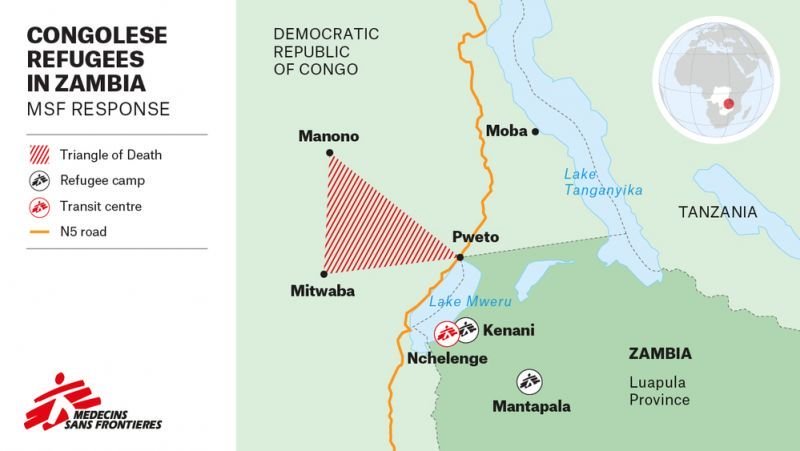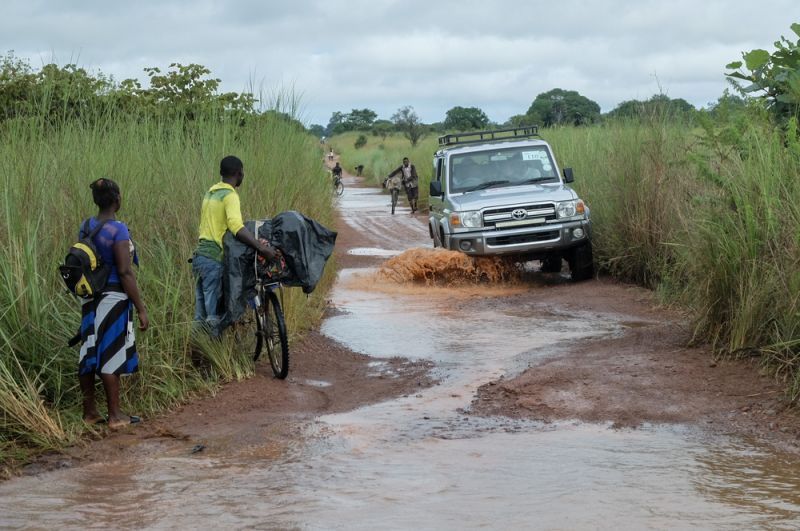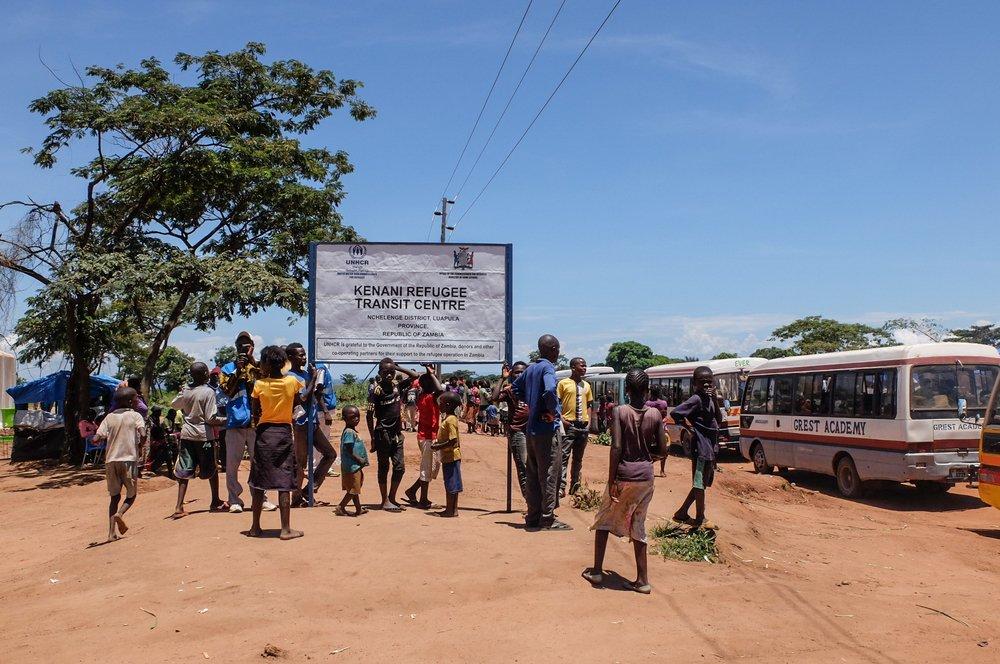At 21 years of age, a young Zambian volunteer found working with MSF for three months to support Congolese refugees put him on completely new career path – from journalism to nursing because he wants to save lives.
Near the border between southeast Democratic Republic of Congo and Zambia’s Luapula province lies the so-called ‘Triangle of Death’ – a huge area known for the appalling violence and brutal conflicts that have raged there for decades
Tensions between different communities, armed groups and the government regularly erupt, forcing thousands of people to flee their homes in multiple directions in search of safe refuge.

A flare-up of violence in September 2017, pushed thousands of Congolese across the border with 12,000 people seeking safety in Mantapala and Kenani camps in Luapula.
It’s here where Chikumbuso Greg Lungu volunteered with international aid agencies to help children caught in the consequences of the violence.
“After the organization I worked for stopped doing child protection, my supervisor recommended me to MSF when the team was looking for volunteers. Having done humanitarian work before, I was instantly interested. I fell in love with humanitarian work.
“I started at MSF helping in the Ambulatory Therapeutic Feeding Centre (ATFC), a project was set up because there were unaddressed cases of severe malnutrition among children. Malaria, diarrhea and respiratory tract infections were the main health problems we saw among people in the camps,” he explains.
“I will always remember two severely malnourished children we treated. They arrived with severe diarrhea, their bones showing under their skin and one of them had oedema.”
(Oedema linked to malnutrition results from low protein levels in the blood that is meant to retain salt and water inside the blood vessels. In its absence, fluid leaks out into the tissues causing swelling.)
The children were orphans left in the care of their great uncle and step-aunt. Despite coming to the health centre, they continued to lose weight, which worried Chikumbuso and his colleagues worrisome.
“We soon discovered that they were being denied their food rations by their caregivers and their Plumpy Nut (a peanut based highly caloric paste) was being sold. Having done child protection in my previous job, I thought there was a need to change custody of the children because it was clear they were being neglected.”

The team admitted the children to hospital and two days later, another family member arrived and began taking care of them.
“Within 14 days both had gained weight and were able to play again. It was all thanks to the care of MSF doctor Irenge Lukeba Landry and other staff. The children's custody was also changed and for me it was a heartwarming moment. Each time I went to see the children; they would run up to me with big smiles on their faces. The best part of my work with MSF was seeing children being discharged from the therapeutic programme after they recovered.”
Before encountering MSF, Chikumbuso says he wanted to be a journalist. “Now I see my interest in journalism fading away and, day by day, my interest in nursing grows. I now know I want to do humanitarian work through nursing so that I can also help save lives like my MSF colleagues.”
Sedi Mbelani, medical coordinator and veteran MSF Southern Africa fieldworker of seven international assignments, worked with Chikumbuso and said he was a quick learner, taking on more responsibilities – including training other nutrition assistants.
“We are thankful to Chikumbuso for the courage and support he gave to the team to meet the needs of our beneficiaries. He has real positive potential that will allow him to serve humanity and his motivation really impressed me. He reminded me of my own start with MSF as a volunteer at the age of 19. It reminded me that there is no link between a person’s age and how good of a humanitarian he or she will be.”
Between March and mid-May 2018, MSF supported the Zambian Ministry of Health by operating nutritional feeding centres in the Kenani and Mantapala camps and running a referral system to the local St. Paul’s Hospital. During this period, MSF medical teams provided more than 6,500 medical consultations. Amongst these, at least 92 people received emergency care and 164 children (under the age of five) were treated for severe malnutrition.
Find out more about MSF's work in Zambia.
